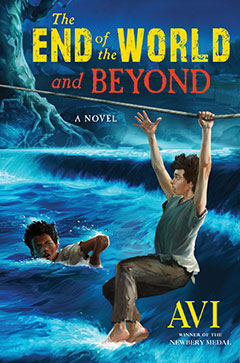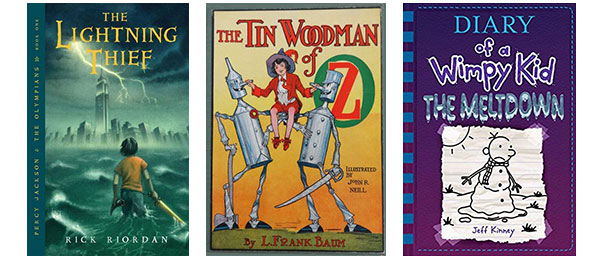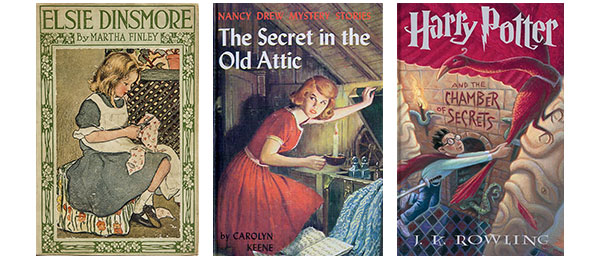 In January, Publishers Weekly published a column titled “Notable Novel Sequels: January 2019.” It was brought to my attention because my new book, The End of the World and Beyond, was cited, one of six books. The full text of the citation reads:
In January, Publishers Weekly published a column titled “Notable Novel Sequels: January 2019.” It was brought to my attention because my new book, The End of the World and Beyond, was cited, one of six books. The full text of the citation reads:
Avi’s sequel to The Unexpected Life of Oliver Cromwell Pitts finds the 18th-century protagonist in transport from England to America, where the convicted thief is enslaved and forced to work on a tobacco farm. Avi offers verisimilitude while calling to mind classic picaresque novels.
While grateful for the notice, and glad to be referenced as “notable,” this is not really a review of the book. That is because—so I have been informed—PW has a new policy of not always reviewing sequels and books of a series. A publisher suggested to me that it might be because, given today’s economics of magazine publishing, there is pressure to reduce page numbers. That said, consider what might not be reviewed with this policy: Through the Looking Glass. the Oz books. the second Pooh book, the Narnia books, the Lord of the Ring books. Harry Potter books, Percy Jackson books, Diary of a Wimpy Kid. I’m sure you can easily think of many more.

It’s not for me to debate the economics of magazine publishing but, surely, publishers are working with writers to create them, though perhaps not so many as the 28 volumes of the (19th Century) Elsie Dinsmore series, or the 19 volumes (20th century) of the Nancy Drew series. Will such new review policies discourage the publication of series books? I have no way of knowing. Most of all, young readers are grabbing them up in great numbers and enjoying them. Will they be discouraged by a lack of reviews? I doubt it. Young readers should have access to them in schools and libraries. A lack of reviews might diminish their acquisition and shelf space in such places.

Over the years, being curious, I’ve asked young readers why they like series books. I surely read them as a kid. Adults read series books too. Why? The easy answer is, having liked one book, there is a built-in recommendation to read a similar book—in the expectation it will bring the same pleasures. The reader has already gained a comfort level with the characters. A comic character will renew the laughs. An adventure figure will bring back the same thrills.
Young readers often mention the sense of family a series brings. One enjoys being surrounded, so to speak, by the same cast of characters who become like friends.
The series book is easier to come back to. You are generally with familiar characters and circumstances the moment you open the book. I knew Tom Swift was going to invent something new, and then do something amazing with it. I looked forward to it, and knew I’d be rewarded.
And in my day, too, the series book was cheaper. It was cheaper when published. When I walked into a used book store there were multiple copies of series books that were all but being given away.
At one time, Schools discouraged them. Do they still?
Happily, libraries had them.
And let it be said, a series book is not automatically a poorly written book. Consider some of the books I mentioned above. In my view, they are really good books.
My sense is that if a young reader reads all the Harry Potter books, they have advanced themselves as readers. After that experience, I’m willing to bet they read more.
Here’s for anything that encourages young people to read. And that includes series books.